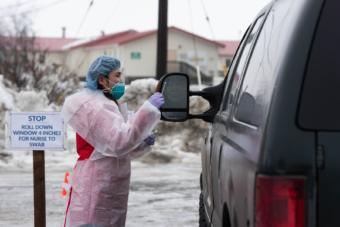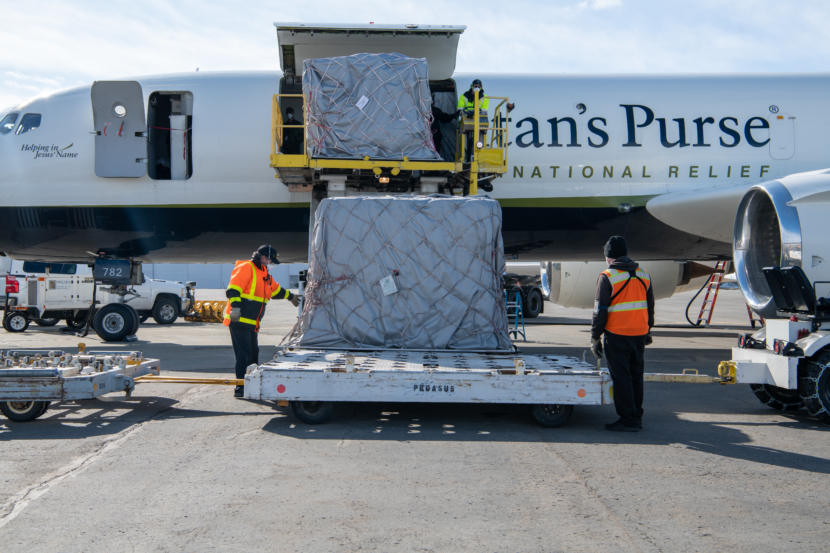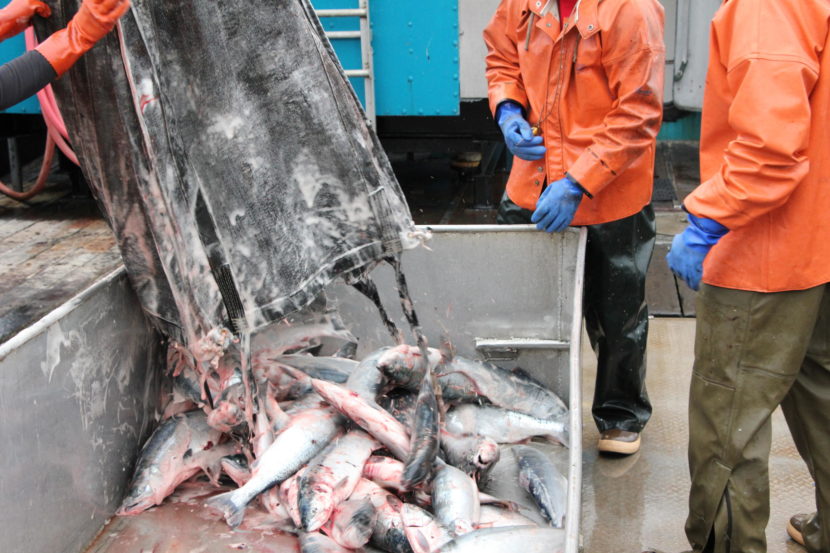Updated at 8 p.m.
With the first case of coronavirus confirmed in Southwest Alaska, state officials and tribal health consortiums are

ramping up testing capabilities in rural Alaskan communities.
During an evening press conference on Tuesday, state officials [April 7] acknowledged the challenges facing villages that rely on air travel to deliver mail, medical and food supplies.
RavnAir Group’s decision to abruptly suspend all operations and declare bankruptcy left rural health care organizations, state officials and airlines scrambling to fill in the gaps.
The Alaska Native Tribal Health Consortium has sent 40 rapid testing machines to rural communities. Those should allow same-day test results for coronavirus.
“The thing about these machines is that they don’t test a lot of cases at once but they can return results in location so we don’t have to send them to state labs,” said Chief Medical Officer Dr. Anne Zink.
Zink said the state is working with health aides in villages to make sure they have enough testing supplies.

Meanwhile, an evangelical Christian aid organization is delivering medical gear for rural communities. Department of Health and Social Services Commissioner Adam Crum said tribal health consortiums from around the region are in charge of getting those out to villages that need them.
But beyond identifying supply needs, the state has been limited in its emergency response to rural communities. Crum said that they have worked closely with tribal health organizations to set up 19 alternative care sites to help hubs like Bethel deal with an outbreak. That includes infrastructure and lodging to accommodate residents in villages who need to self-isolate or quarantine.
“As far as quarantine housing, a lot of regions around the state, we’ve identified possible quarantine items as necessary if people can’t be safely quarantined in their home area or if they are stranded,” Crum said.
He did not say when the state will deliver that infrastructure.

Meanwhile, commercial fishing is another top concern for coastal communities like the Bristol Bay region.
The City of Dillingham and the Curyung Tribal Council sent a letter to the governor urging him to close commercial fishing to prevent the spread of coronavirus.
Bristol Bay’s summer fishing season includes the largest sockeye salmon fishery in the world. Ever year, thousands of fishermen and processing workers flood into small communities around the region.
Crum said state officials are in talks with stakeholders to see how to move forward.
“So we’re going to make sure that the local communities understand what the proper response is,” Crum said.
And traveling through rural Alaska could present new challenges to state officials trying to help villages prevent the spread of coronavirus.
Tribes have started restricting travel within their communities to limit transmission of the virus. Those restrictions vary in severity, with some tribes recommending people don’t enter communities. Others are outright banning all outbound and inbound travel unless it’s for medical or emergency reasons.
Dunleavy said he’ll address those community-level restrictions should they limit state response to an outbreak or essential businesses.
“Again, we don’t want to come up with this hard and fast rules that make people in Alaska not want to help out,” Dunleavy said.
Original story
Gov. Mike Dunleavy’s latest COVID-19 press conference is scheduled for 5 p.m.
The governor, Health and Social Services Commissioner Adam Crum and Chief Medical Officer Dr. Anne Zink have been holding these briefings almost daily since March 10.
During Tuesday’s briefing, they’ll be discussing the state’s COVID-19 response plan in rural Alaska.
At these news conferences, administration officials have shared updates on the number of people in the state with confirmed cases, announced public health mandates and explained the administration’s strategy and rationale.
They’ve imposed 12 public health mandates that have reshaped daily life across Alaska to combat the spread of the virus. Those mandates and other Alaska-specific COVID-19 resources and information are available at coronavirus.alaska.gov.
There have been few positive cases of the virus identified in rural Alaska. A resident of the Western Alaska hub of Bethel has tested positive on Monday and is self-isolating at home.
According to KYUK, the Yukon-Kuskokwim Health Corp. — which operates a hospital in Bethel and clinics in many of the surrounding villages — has conducted about 70 COVID-19 tests. The results of 25 are still pending.
The hospital says it has enough test kits to meet the needs in the region now.
The Anchorage Daily News reported on Monday that the Yukon-Kuskokwim Health Corp. had planned to launch village-based testing by April 1. But those plans were complicated by the bankruptcy announcement of the RavnAir Group — the only air carrier in many of the villages. That means there are no available flights to carry swabs from some villages to hub communities for testing.
You can watch Tuesday’s news conference live on this post, the governor’s Facebook or Livestream pages, or on 360 North television.
This preview was written by KTOO’s Rashah McChesney.
